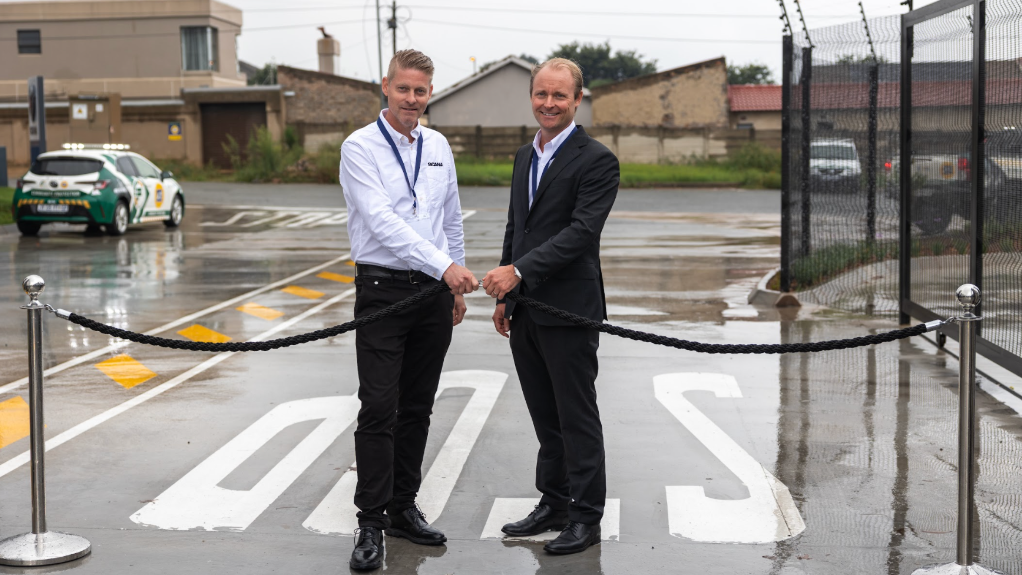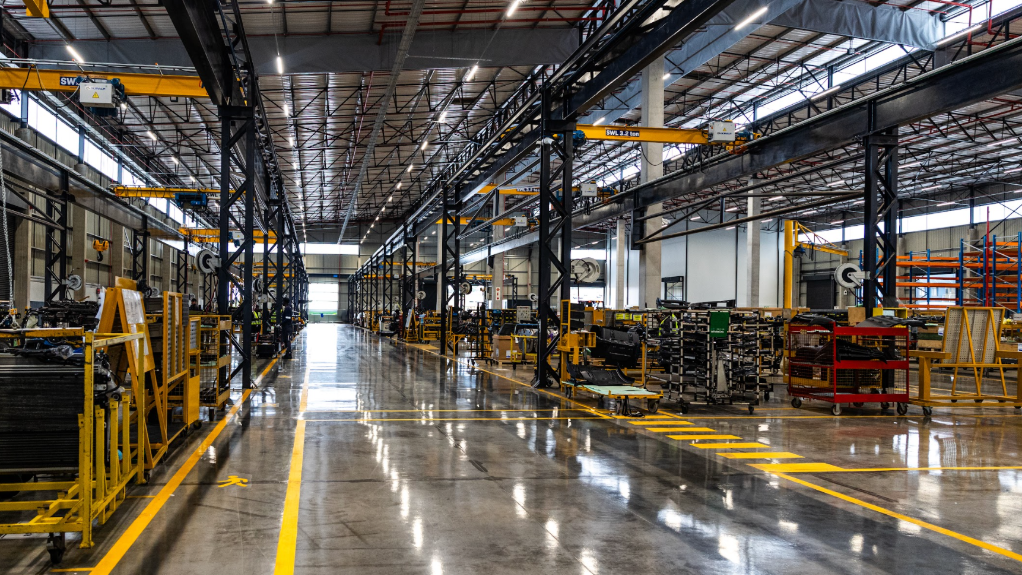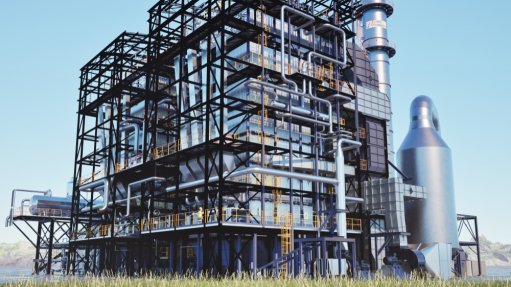Local assembly plant to enhance product offering



RPC INAUGURATION Scania Southern Africa RPC manager Christian Håkansson and Scania Southern Africa MD Erik Bergvall shake hands on the launch of the new assembly plant in Aeroton, Johannesburg
RPC ASSEMBLY PLANT The RPC contains a shared assembly line for buses and trucks, and will roll out about 3 200 units a year
Following the inauguration and launch in February of its new regional product centre (RPC) assembly plant, in Johannesburg, bus and truck manufacturer Scania South Africa aims to provide reliable transport solutions to meet the region’s demand for high-performance buses and trucks, says RPC manager Christian Håkansson.
The RPC will specialise in the assembly of bus and truck chassis above 16 t on a shared assembly line that can roll out 3 200 units a year.
“At its core, the new RPC enables us to serve our customers better, faster and more efficiently. By localising production and assembly, we reduce lead times and improve product availability – a critical advantage for businesses that can’t afford downtime. For fleet owners and logistics operators, that means quicker access to reliable, high- performing vehicles that are suited to local conditions.”
While Scania South Africa does not manufacture locally – it imports vehicle components, such as cabs, engines and gearboxes, from the Netherlands and Brazil – the company stresses the importance of providing South Africans with skilled employment opportunities.
Consequently, the assembly plant’s contribution to employment, will, in turn, help drive economic development by facilitating opportunities for locals to become skilled workers, he says.
Further, the RPC will help to reduce reliance on the import of medium- and heavy-duty vehicles and components, consequently helping to retain capital within the South African manufacturing sector, which is especially critical, given global trade tensions.
“We already incorporate local content where possible, including items such as batteries, tyres, paint, decals and other consumables,” Håkansson adds.
Meanwhile, Scania is aware of its social responsibility: “The aim is simple; keep drivers safe, reduce accidents and protect everyone on the road,” Håkansson comments.
For this reason, it has equipped its latest vehicles with “cutting-edge technologies” to improve driver safety, including advanced emergency braking systems, digital tools to monitor driver behaviour and vehicle performance, electronic stability control and lane departure warning systems.
He adds that the company has invested and continues to invest “heavily” in improving its ergonomic cab designs to reduce driver fatigue.
Cleaner Engines
Scania aims to boost the uptake of environment-friendly engines by emphasising to clients – through its new RPC – the growing importance of adopting Euro 5 engines, which will help businesses comply with stringent emission regulations.
The adoption of such engines will enable organisations to improve on fuel costs and enhance their environmental credentials with clients, which will, in turn, help to “futureproof” their businesses.
“Scania plays a critical role here by offering tailored product solutions, expert consultations and training to support this transition, while lobbying for the broader infrastructure and policy environment needed to make low-emission transport commercially viable,” Håkansson explains.
Despite the possible challenges the RPC could face – such as managing production volumes, staying abreast of evolving customer demands, new model introductions and supply fluctuations – Scania is well equipped to address these concerns through proper planning, quick adaptation and maintaining operational efficiency by improving processes.
“Our team is committed to learning, evolving and maintaining world-class standards, even in the face of change,” he adds.
The company aims to identify further gaps in the market, and the opportunities through which global quality and safety standards can be incorporated into South African components and vehicles.
“Our long-term vision includes deepening local partnerships and identifying further opportunities for localisation,” he concludes.
Article Enquiry
Email Article
Save Article
Feedback
To advertise email advertising@creamermedia.co.za or click here
Press Office
Announcements
What's On
Subscribe to improve your user experience...
Option 1 (equivalent of R125 a month):
Receive a weekly copy of Creamer Media's Engineering News & Mining Weekly magazine
(print copy for those in South Africa and e-magazine for those outside of South Africa)
Receive daily email newsletters
Access to full search results
Access archive of magazine back copies
Access to Projects in Progress
Access to ONE Research Report of your choice in PDF format
Option 2 (equivalent of R375 a month):
All benefits from Option 1
PLUS
Access to Creamer Media's Research Channel Africa for ALL Research Reports, in PDF format, on various industrial and mining sectors
including Electricity; Water; Energy Transition; Hydrogen; Roads, Rail and Ports; Coal; Gold; Platinum; Battery Metals; etc.
Already a subscriber?
Forgotten your password?
Receive weekly copy of Creamer Media's Engineering News & Mining Weekly magazine (print copy for those in South Africa and e-magazine for those outside of South Africa)
➕
Recieve daily email newsletters
➕
Access to full search results
➕
Access archive of magazine back copies
➕
Access to Projects in Progress
➕
Access to ONE Research Report of your choice in PDF format
RESEARCH CHANNEL AFRICA
R4500 (equivalent of R375 a month)
SUBSCRIBEAll benefits from Option 1
➕
Access to Creamer Media's Research Channel Africa for ALL Research Reports on various industrial and mining sectors, in PDF format, including on:
Electricity
➕
Water
➕
Energy Transition
➕
Hydrogen
➕
Roads, Rail and Ports
➕
Coal
➕
Gold
➕
Platinum
➕
Battery Metals
➕
etc.
Receive all benefits from Option 1 or Option 2 delivered to numerous people at your company
➕
Multiple User names and Passwords for simultaneous log-ins
➕
Intranet integration access to all in your organisation




















